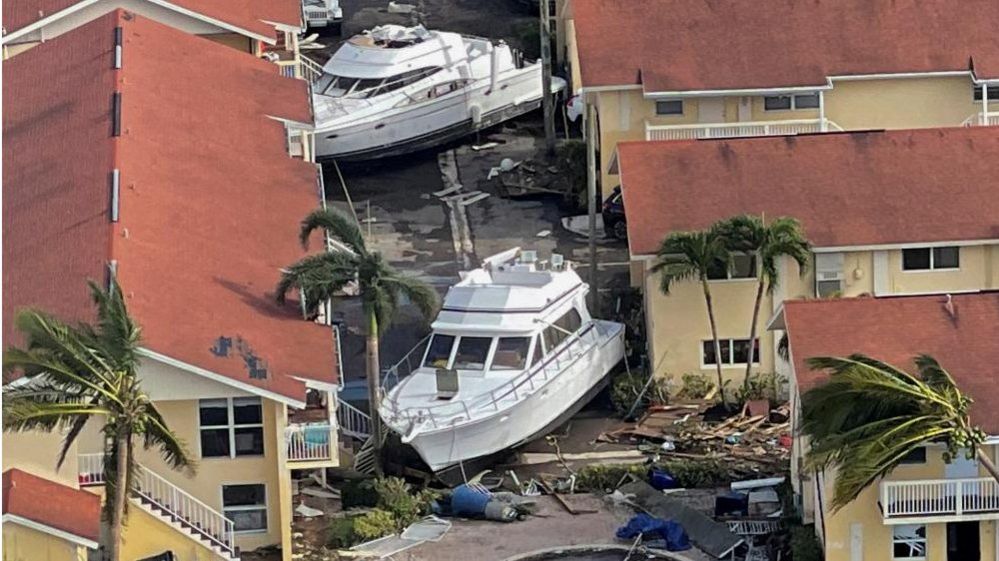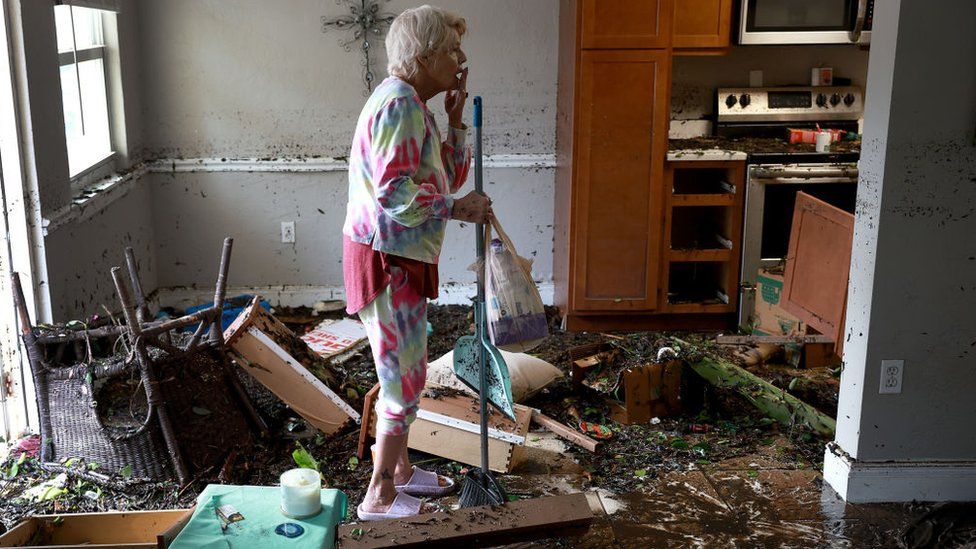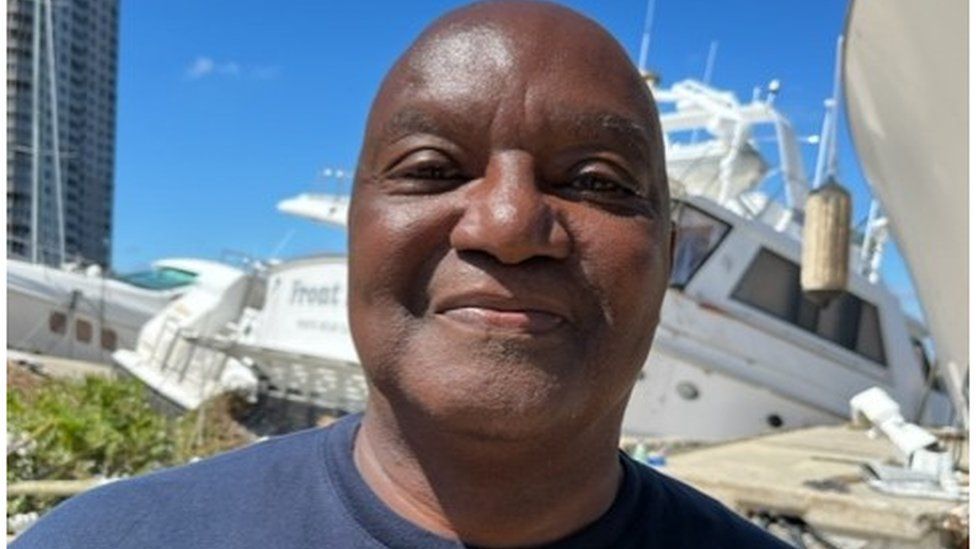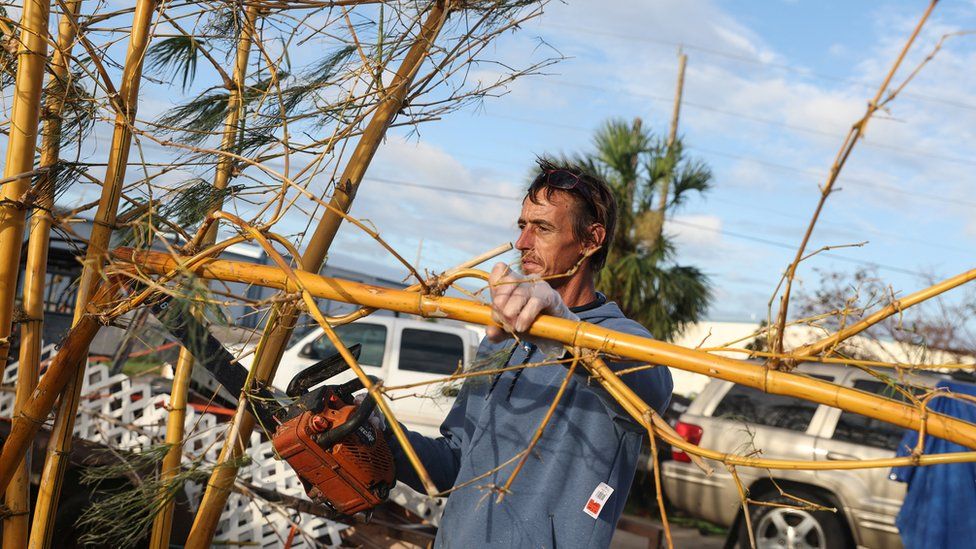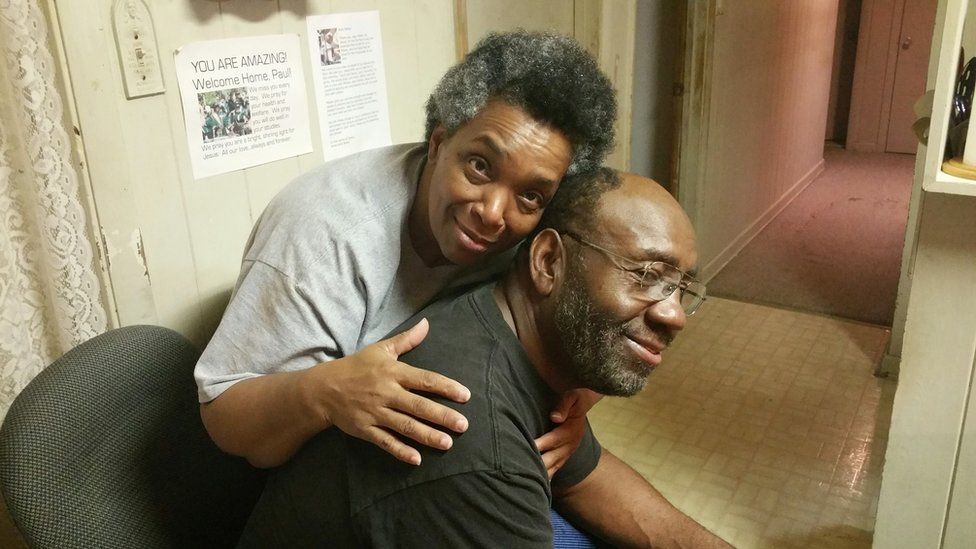
The Gavin family arrived on Sanibel over 100 years ago, one of the first two black families to settle on the idyllic island that dangles off the west coast of Florida like a fishing hook.
They have survived storms, discrimination and living costs that seem to get higher with each passing year.
But now, the Gavins’ descendants have been driven off Sanibel by Hurricane Ian, which struck the small strip of land and the nearby coast with such ferocity this week that it put entire neighbourhoods underwater and cut power for over two million people. It’s unclear when – or if – they’ll ever be able to return.
Ahead of the hurricane, Oscar and Myra Jean Gavin, both in their 70s, packed up as many belongings as they could fit in their car and crossed the thin causeway that connects Sanibel to the mainland to ride out the storm in a friend’s Fort Myers condominium.
Since then, their escape route has closed behind them: Ian pulverised the causeway, severing it from the mainland for the foreseeable future.
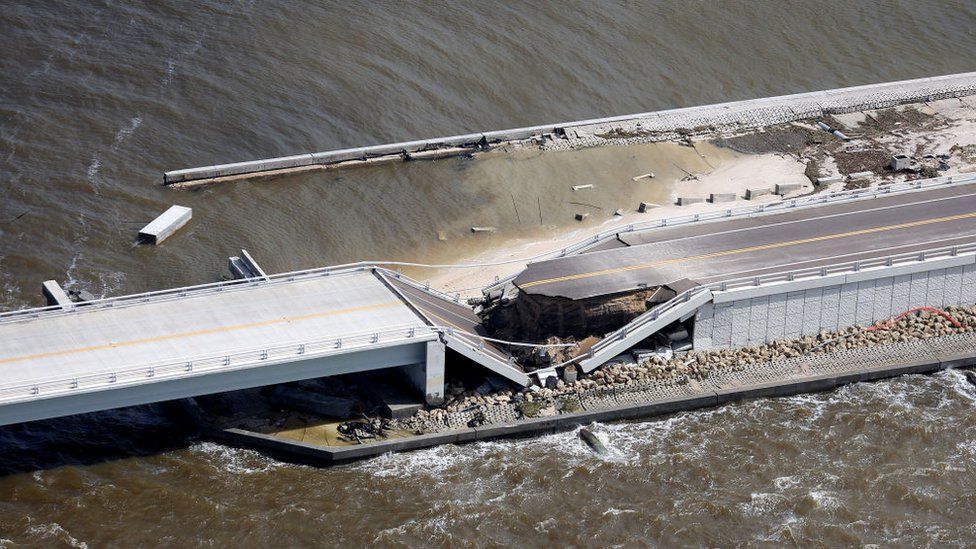
But a deeper link may have been harmed as well – one that ties the Gavin family to the history and culture of Sanibel.
“Our family has been a fixture of that community for a very long time,” said their daughter, Phoebe. “The idea of losing that, is losing a huge part of who we are.”
A century of history
The first Gavins, Hannah and Isaiah, arrived on the barrier island in 1917. They were one of two of the first black families to arrive, along with another surnamed Walker.
They were sharecroppers, and worked hard to find their footing there. “It was mostly dirt roads and farms,” Phoebe said.
A generation later, the two families would merge when Edmond Gavin, Sr and Elnora Walker married. Edmond Sr developed a reputation as a skilled machinist, and one of his “contraptions” was put to work clearing trees after Hurricane Donna in 1960.
He and Elnora had 21 children, one of whom was Oscar, Phoebe’s father. Many of the others also set down roots on Sanibel. Over the years, members of the family founded landscaping companies and owned restaurants.
Life was not, however, entirely idyllic. Sanibel, though a geographical paradise, wasn’t immune to forces of racism and economic inequality that the rest of the country has grappled with for centuries.
Segregation, Jim Crow era – the “more challenging moments in American history” – those things “played out on Sanibel” too, said Phoebe.
Irving Gavin, another member of the sprawling family, recalled to the island’s local newspaper in 2017 a time when his father was young. “He wasn’t able to go sit down in a restaurant, he had to go to the back door and be served on Sanibel.”
For generations, “people really knew the Gavins because of their place and their history”, said Phoebe, who lives in Washington, DC. (Her parents still are without power in Florida, and she declined an interview request on their behalf).
Family members have been profiled by the local press, which celebrated the Gavins’ centennial in 2017. A plaque marks the spot where Phoebe’s great-grandparents’ house once stood, though “there’s no reason to believe it’s still there” after the storm, she said.
Before Ian arrived, larger forces have been challenging the family’s continued presence there. What began as an agricultural island has, over the decades, morphed into a high-end waterfront community. Today, the island is 97% white and the median household income is $92,000.
Less than 2% of Sanibel’s population is black.
Oscar owns a plumbing business and Myra Jean is a housekeeper. Fewer and fewer middle- and working-class residents like the Gavins are able to make ends meet, their daughter said.
“It has become basically unaffordable for most people. Housing prices are going up and up and up,” she added. Phoebe estimated that somewhere between 20 and 30 family members still lived on the island.
Then Ian arrived.
A frantic search
Phoebe knew her parents had left Sanibel for Fort Myers ahead of the storm, and they had texted as they settled into their friends’ apartment. But their trials did not end there.
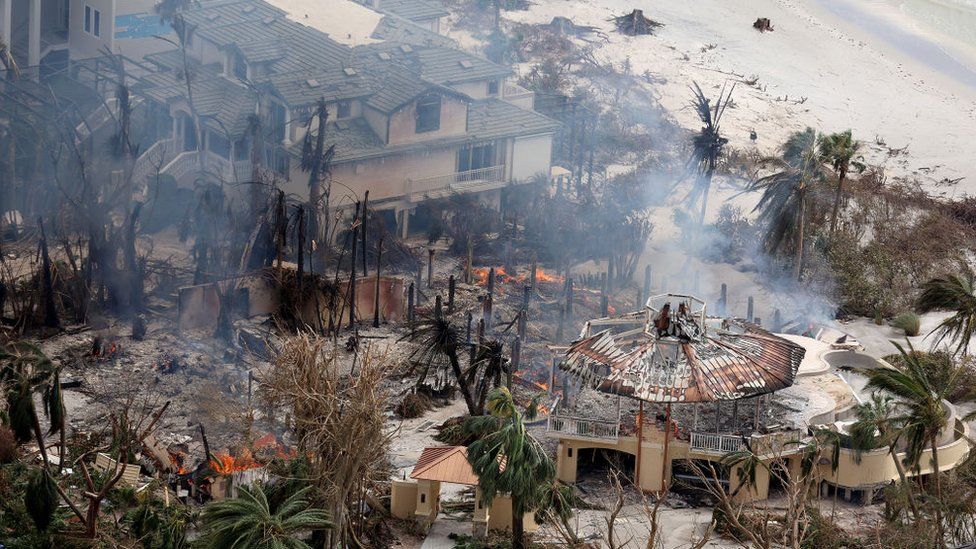
Hurricane Ian’s eye soon bore down on the Fort Myers region, knocking out mobile phone service. When she hadn’t heard from her parents, Phoebe turned to Twitter for help.
“Please help me find my parents,” she tweeted Wednesday night, along with a map of their last known location. “If you have footage or have had people check in nearby, please help me.”
Relief finally came on Thursday morning when her mother managed to make a spotty 30-second phone call from her husband’s ancient Nokia flip phone. They were safe.
“I was able to hear that they were OK, that they were safe, they were uninjured,” she told the BBC. “They had water. She said something about food, but I couldn’t make it out.” They’ve been able to text sporadically. With the power still out, the family is trying to maintain the trusty flip phone’s battery as long as possible. The family friend will allow them to stay at the condominium for as long as they need.
As for the other family members who live on Sanibel, Phoebe believes they left safely before the storm.
Other residents who did remain on the island woke up Thursday to find their community upended. Videos of the destroyed bridge went viral. The Coast Guard was rescuing people by airlift.
“It’s total devastation,” one resident, Kim Carman, told CNN. “I never dreamed I’d see anything like this in my lifetime. Especially on Sanibel. You look at it and it does not look real, it is just so overwhelming.”
Now, the long road to recovery begins. Like others who left Sanibel, the Gavins don’t know when or if they will return.
“Obviously the psychological trauma of going through something like this is always difficult,” Phoebe said. “The aspect we will have to deal with is losing a part of our identity as well.”
Phoebe also feared that most of the resources for rebuilding would go to wealthier Sanibel residents, and that the loss of tourism would harm working class people who made their livings in the industry.
NEW UPDATE: The snowbird church member who let my #Sanibel parents shelter in his #FortMyers home is letting them stay for as long as they need – even if it’s months.
My parents might be homeless, but they aren’t houseless.
We will dance again soon, mama. pic.twitter.com/FAYNaVlshu
— Phoebe the Career Coach (@betterwphoebe) September 29, 2022
But for now, she was happy her parents were safe, and looked forward to reuniting with them soon.
“My parents might be homeless, but they aren’t houseless,” Phoebe tweeted, along with a video of her and her mother. “We will dance again soon, mama.”
-
-
11 hours ago
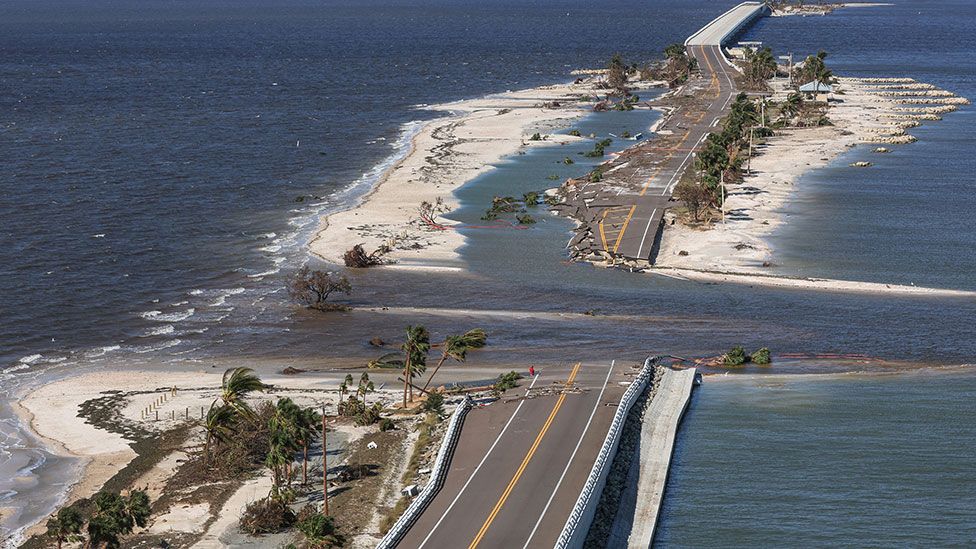
-

